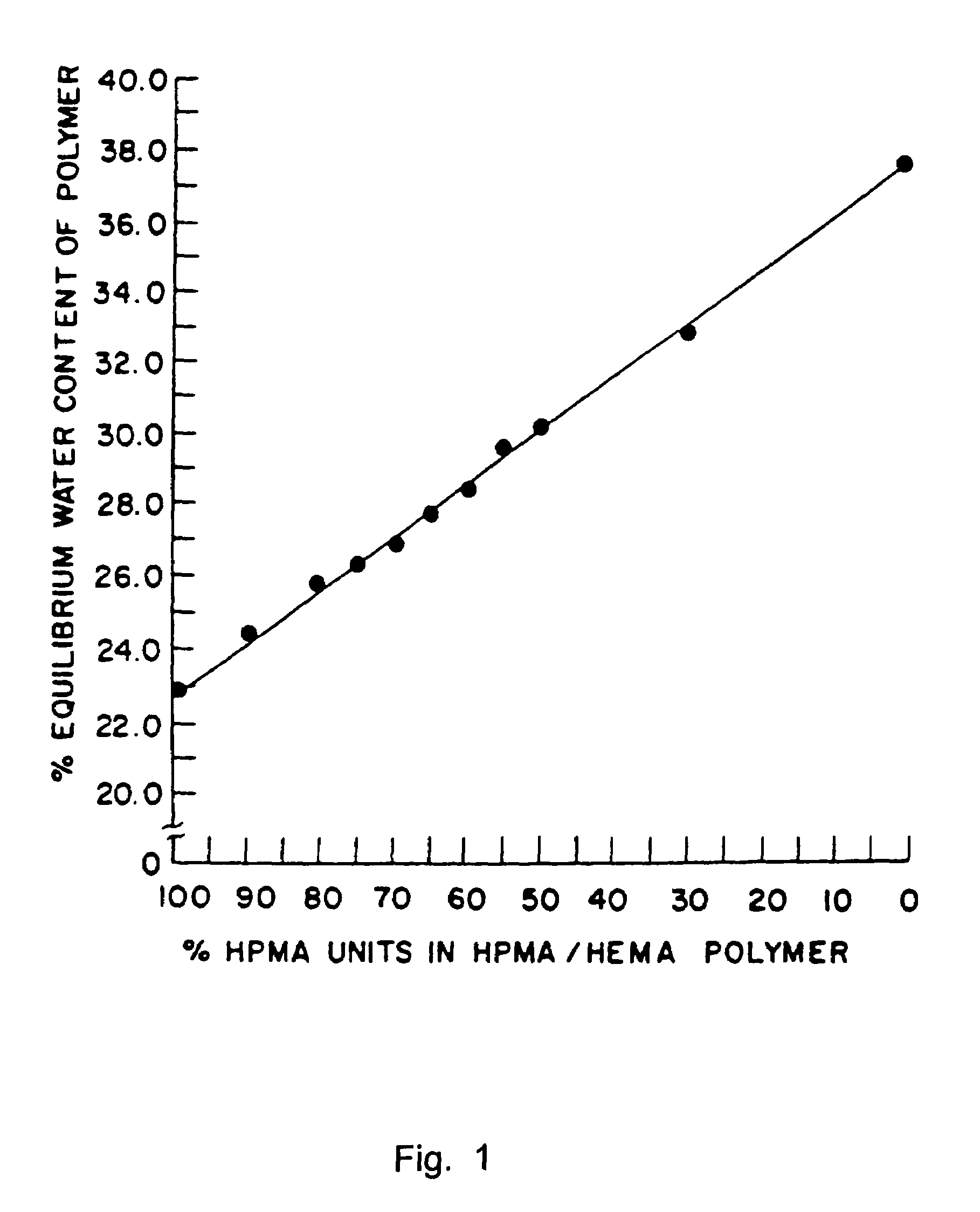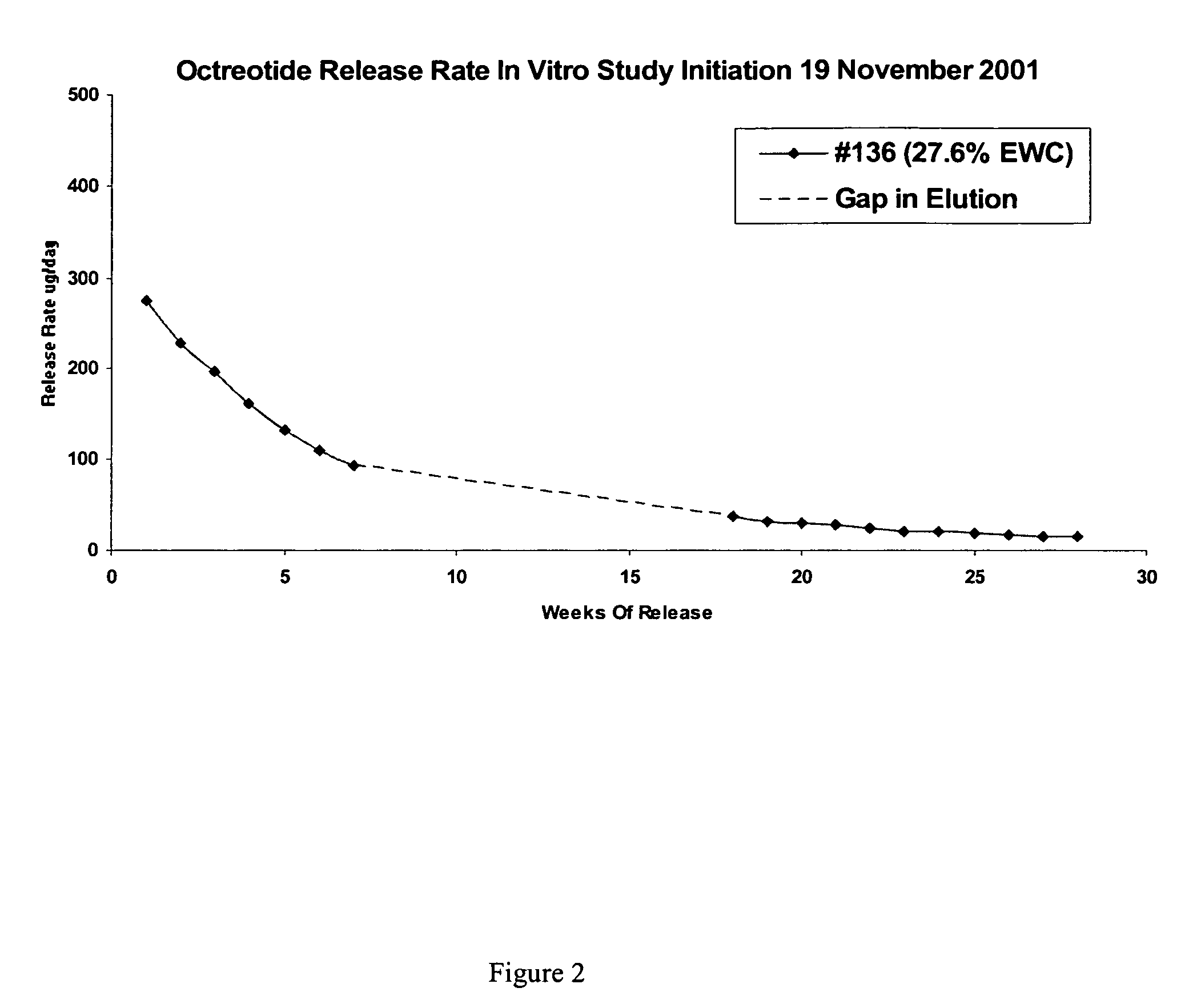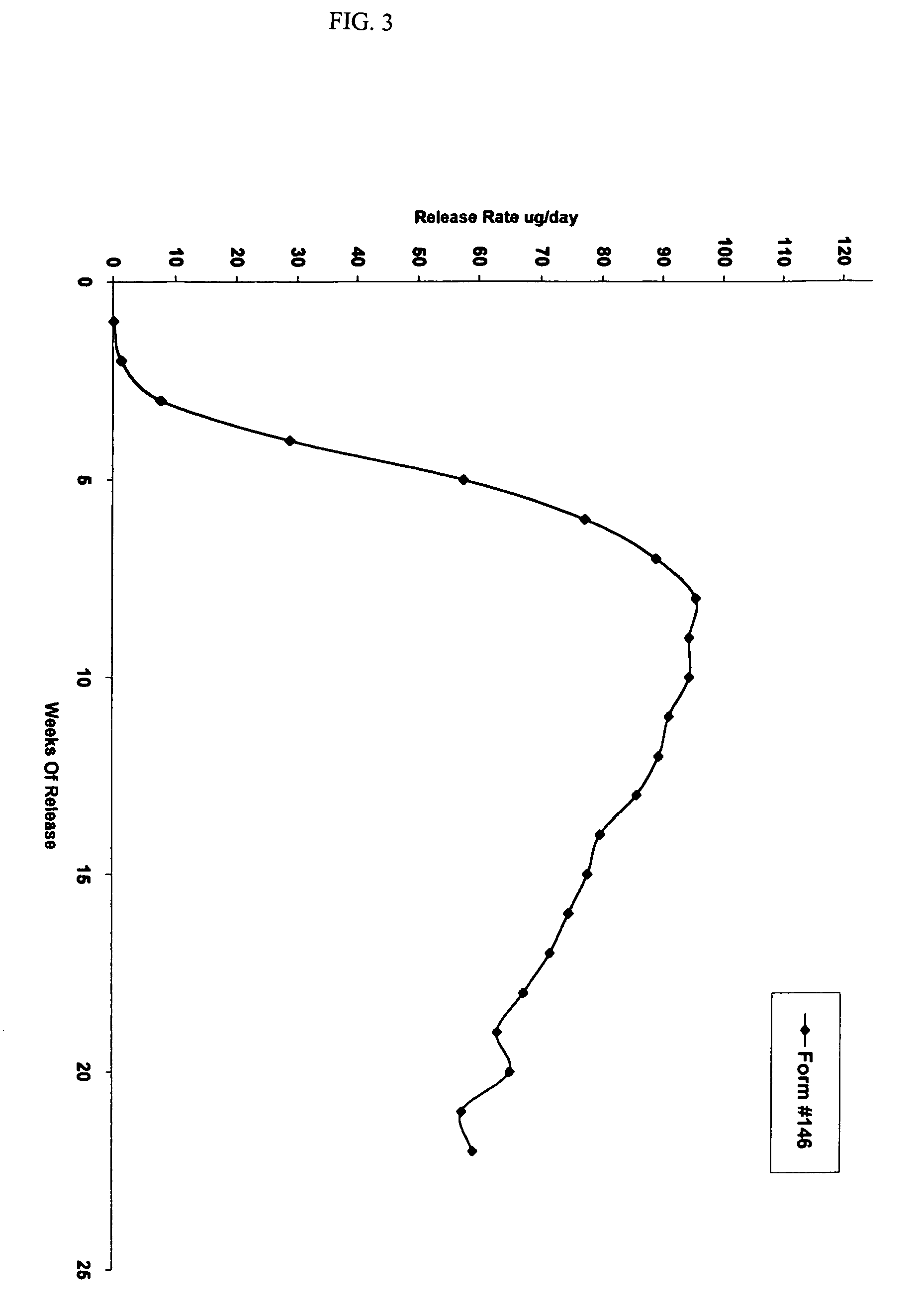Controlled release formulations of octreotide
a technology of octreotide and formulation, which is applied in the direction of peptide/protein ingredients, metabolism disorders, prosthesis, etc., can solve the problems of carpal tunnel syndrome, frequent misdiagnosis, and so as to avoid large initial release peak of octreotide and increase the level of gh or igf-1
- Summary
- Abstract
- Description
- Claims
- Application Information
AI Technical Summary
Benefits of technology
Problems solved by technology
Method used
Image
Examples
example 1
In Vitro Octreotide Release Rates
[0156]This example illustrates preparation of implantable octreotide formulations of the present invention and their in vitro release of octreotide. In the present study, a series of implants were tested to determine stability and in vitro release characteristics of octreotide from the hydrogel formulations over about 22 weeks (No. 146), 28 weeks (No. 136) and 33 weeks (all other formulations). Each implant contained about 50 milligrams of octreotide acetate and about 2% stearic acid, but the polymer cartridges contained different amounts of HEMA and HPMA and therefore exhibited different % EWCs, as depicted in Table 1.
[0157]
TABLE 1Formulation%%%Excipients / OtherNumberHEMAHPMAEWCIngredients146099.522.92% stearic acid1451089.523.42% stearic acid1471584.524.42% stearic acid1332079.525.22% stearic acid1442574.525.62% stearic acid1433069.526.12% stearic acid1423564.526.62% stearic acid1364059.527.62% stearic acid
[0158]FIGS. 2, 3 and 4 depict the release o...
example 2
Formulation Study in Calf Serum
[0159]To determine the effect of osmotic pressure on the swelling problem two implants of the present invention corresponding to Formulation No. 136 and Formulation No. 143 were eluted in calf serum. In particular, Formulation No. 136, composed of about 40% HEMA and 60% HPMA, containing octreotide acetate with 2% stearic acid and Formulation No. 143, composed of about 30% HEMA and 70% HPMA, containing a mixture of 20% PEG3300 and 80% octreotide acetate, were tested. After three months, the implants exhibited normal appearance, being relatively straight and only slightly swollen.
example 3
Formulation Study
[0160]Due to osmotic pressure differential the implants described in example 1 were seen to swell significantly ultimately resulting in bursting of the implants. This example illustrates formulations designed to screen agents useful in stabilization of the octreotide implant. In the present study, a series of implants was monitored to determine the effect of excipient on implant shape and durability. Each of the polymer cartridges was composed of about 28% HEMA, about 66.5% HPMA and 5% glycerin. The contents contained octreotide acetate with various excipients, as shown in Table 2.
[0161]
TABLE 2SampleNo.Excipients / Other Ingredients1None220% PEG 3300340% PEG 33004 2% Stearic acid (control)510% Glycolic acid620% Poly(lactic acid)710% Mannitol810% MCC (microcrystalline cellulose)920% MCC1010% Sesame oil
[0162]Hydrophobic agents such as sesame oil and MCC separated in the formulation and did not provide “preferential hydration” and were less preferable in accordance with ...
PUM
| Property | Measurement | Unit |
|---|---|---|
| time | aaaaa | aaaaa |
| time | aaaaa | aaaaa |
| time | aaaaa | aaaaa |
Abstract
Description
Claims
Application Information
 Login to View More
Login to View More - R&D
- Intellectual Property
- Life Sciences
- Materials
- Tech Scout
- Unparalleled Data Quality
- Higher Quality Content
- 60% Fewer Hallucinations
Browse by: Latest US Patents, China's latest patents, Technical Efficacy Thesaurus, Application Domain, Technology Topic, Popular Technical Reports.
© 2025 PatSnap. All rights reserved.Legal|Privacy policy|Modern Slavery Act Transparency Statement|Sitemap|About US| Contact US: help@patsnap.com



